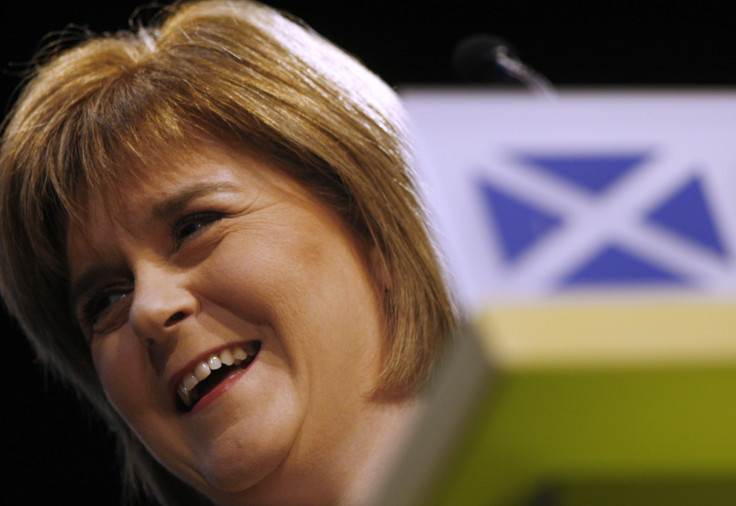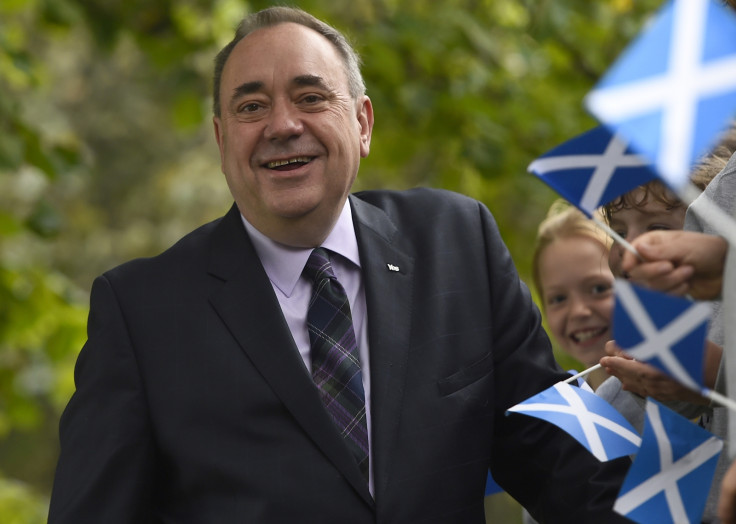After the Referendum: Could Labour go the way of the Tories in Scotland?

September went out with a political bang in a manner that has shaken the three main established parties to an extent that few could have imagined just four short weeks ago. The standing of each of the three principle party leaders has also been weakened over the course of last month and there's little time between now and the dissolution of Parliament on 30 March 2015 to mend the breaches.
The good news was the catastrophic was averted but not without, unfortunately, the three leaders making their all too hurried way to Scotland as one opinion poll put the "Yes" camp for Scottish Independence ahead, a week before the Independence Referendum.
Last minute promises were made of extra powers being granted to the Scottish Parliament in Edinburgh, to make continued union with the rest of the United Kingdom more attractive. As much of this was already in Edinburgh's remit but with added precision, and the fine detail not something the broad public pore over anyway, it is most likely to have had a very marginal impact on how Scotland finally voted.
The politically mindful, however, will not be surprised to learn that Scotland's "Yes" campaign leader and former First Minister, Alex Salmond, who stepped down on losing the referendum, claims the promises made were a critical factor in the "swing" to "No" during the last couple of days before voting.
The result in Glasgow is amazing. Labour has seen its day in Glasgow and this is definitely the start of something new
Other aspects were more pertinent, such as the haemorrhaging of Labour's traditional core vote to the "Yes" cause. Variously estimated to have been between 33 and 47 per cent, this more than any other factor threw all the old calculations (67:33 "No" or at worst 60:40 "No") out of the frame.
A fervent barnstorming by Gordon Brown, the former prime minister, might well have pulled back some of the waverers – he was never better and would be a true asset at Holyrood – but did he really bridge that divide of more than 10%?
Reporter Scott Macnab in The Scotsman on 20 September, quoted one still enthusiastic loser, 16-year-old Saffron Dickson:
"...the result in Glasgow is amazing. Labour has seen its day in Glasgow and this is definitely the start of something new."
Another ploy, supported generally by Labour and the Liberal Democrats in the Scottish Parliament, had been to include 16 and 17-year-olds in the franchise – a move Salmond has now proposed Holyrood should make permanent.
This is less to do with the maturity and life experience this group brings to the electoral register than to their proclivity to support Scottish Independence, apparently by a margin of 71 per cent to 29 per cent of those who voted so the other two main parties may not be quite so keen to see this enshrined.
Yet an alarm bell politicians of all parties, north and south of the border, could do well to mind is summed up by Andrew Grice who wrote in the I newspaper on 13 September:

"It might be tempting to argue that 'Scotland is different' to the rest of the UK. But the real story is that it is not very different at all. Mr Salmond has brilliantly hoovered up the anti-political establishment vote, appealing to the millions who can no longer stomach 'politics as usual' and cannot trust mainstream politicians of any hue. True, Scotland may be more tired of austerity than England...
"It is why the other winner of the Scottish Referendum campaign will be... Nigel Farage."
That the United Kingdom could be broken apart because a particular political party is in power, one which most polls predict will lose the next general election, must astonish many both at home and abroad. What is equally worrying was that the "No" campaign spokespersons, ignored or refused to engage in any meaningful debate on the political and economic consequences if their cause had won.
When taken in the light of figures published in March this year by the Scottish Government that Scotland in financial year 2012 to 2013 ran a deficit of £12bn+ (8.3% of Scotland's GDP) when a geographical share of North Sea oil revenues is included and a deficit over £17bn (13.3% of GDP) when that is reduced to a per capita basis, reflects the limitations of the democratic process to put over serious issues.
The outcome of it all has been a Commission set up by the government under Lord Smith of Kelvin that will determine how the Scottish Parliament's additional powers are to be applied.
Tom Peterkin and David Maddox reported in The Scotsman on 4 October that Labour and Conservatives are on the cusp of a deal that will make Holyrood responsible for all income tax (while Westminster will still set the tax-free personal allowance), a demand made by Scottish Conservative Party leader Ruth Davidson.
Davidson, widely agreed to have had an excellent "Better Together" campaign and who is credited with giving the Tories some heart in Scotland, told the reporters' Scotland On Sunday issue that "full control of income tax bands and rates is her party's red line issue".
She added: "I think it is the right thing to do. I think it is extraordinary that tens of billions of pounds are distributed by people in government in Scotland who are not in charge of where that money comes from."
I think it is the right thing to do. I think it is extraordinary that tens of billions of pounds are distributed by people in government in Scotland who are not in charge of where that money comes from
Surely that has the potential of altering the Barnett formula by which the Treasury allots amounts of public expenditure in Scotland. It – the raising of the taxes and not simply being handed an amount allotted by Westminster – also places upon whichever party is in power in Scotland, a much greater duty of care as to how resources are used.
In the future it may no longer be quite so easy to make, for example, prescriptions free in Scotland while they are paid for in the rest of the UK, for it is in the end an income stream foregone. Income streams foregone need plugging from other sources – or not, maybe! Just look at that Scottish deficit.
As a quid pro quo for the concessions on taxation, the Tories will accept Labour's welfare plans in full – the devolving to the Scottish Parliament of Housing Benefits, Attendance Allowance, the Department of Work and Pensions Work Programme and the like.
That the two main Westminster parties have reached an accord is a good start and there will be input from the Liberal Democrats and others too. Trying to satisfy Nicola Sturgeon who is expected to be the new leader of the Scottish National Party (SNP) and first minister in November is not going to be a pushover. The lady has a very high "trust" rating in Scotland and not just within the SNP.
Labour is the party with the most to lose, both at the UK General Election in 2015 and even more it seems at the General Election for the Scottish Parliament in 2016. The party has to wrestle back as many of those who defected to the "Yes" camp.
Going on past elections this is indeed what happens when voting for the UK Parliament support for the SNP drops to about 20 per cent but Dickson and her young cohort could tilt the balance and that "taken for granted" batch of Labour MPs at Westminster is likely to be less numerous.
In the latest poll taken by Survation and reported by Scotland On Sunday on 5 October, 39% said they intended voting for Labour in the UK 2015 General Election to 35% for the SNP. Things look very rosy for the SNP in 2016 for Sturgeon. The same poll saw support for her party surge to 49%, leaving Labour trailing on 33%.
On the eve of the Scottish independence referendum the SNP had some 25,000 members. It has now surpassed 75,000 and rising. Nothing will be quite the same again.
© Copyright IBTimes 2025. All rights reserved.






















